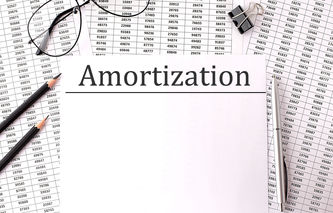Definition
The financial investing term free cash flow refers to the money a company is able to generate after subtracting the costs necessary to maintain and expand the business. Free cash flow (FCF) is a metric that's closely tracked by both the company's financial decision makers as well as investor-analysts.
Calculation
Free Cash Flow (FCF) = Operating Cash Flow - Capital Expenditures
Where:
Operating Cash Flow = EBIT x (1 - Tax Rate) + Depreciation + Amortization - Change in Net Working Capital
Explanation
The cash a company generates allows it to pay for its operating expenses, return money owed to lenders, and expand its business. Also referred to as FCF, free cash flow is considered by many investor-analysts to be a superior measure to net income, since it's more difficult to manipulate through less-than-reputable accounting practices. For example, an income statement may indicate the company is generating profits; if it runs out of cash, however, the company may wind up in a bankruptcy proceeding.
Free cash flow takes the company's operating cash flow and adjusts it for capital expenditures. For this reason, analysts must evaluate free cash flow along with the company's reserve of cash. While it's desirable for FCF to be a positive number, companies can have a negative value if they're making large capital investments. For example, an increase in the demand for a company's product can result in large capital expenditures to expand production capacity. In this example, an increase in the company's future profits would justify a near-term decrease in cash reserves. Free cash flow can also decrease when there is an increase to working capital, which is the money a company sets aside to pay for its short term operating expenses.
Another way to view cash flow is this: It's the money available to shareholders and lenders; since these funds would be used to pay bondholders or dividends to owners of common stock. Finally, the calculation of FCF excludes non-cash expenses such as depreciation and amortization. It's also a metric that uses information from both the income statement as well as the balance sheet.
Example
Company A's income statement indicates EBIT of $15,550,000, which includes a depreciation expense of $3,250,000. Company A's balance sheet indicates a year-over-year decrease in working capital of $2,000,000, while fixed assets grew by $5,000,000. Company A's effective tax rate is 40%.
The operating cash flow for Company A would be calculated as follows:
= $15,550,000 x (1 - 0.40) + $3,250,000 - $2,000,000 = $9,330,000 + $3,250,000 - $2,000,000 = $10,580,000
While free cash flow for Company A would be calculated as follows:
= $10,580,000 - $5,000,000, or $5,580,000






